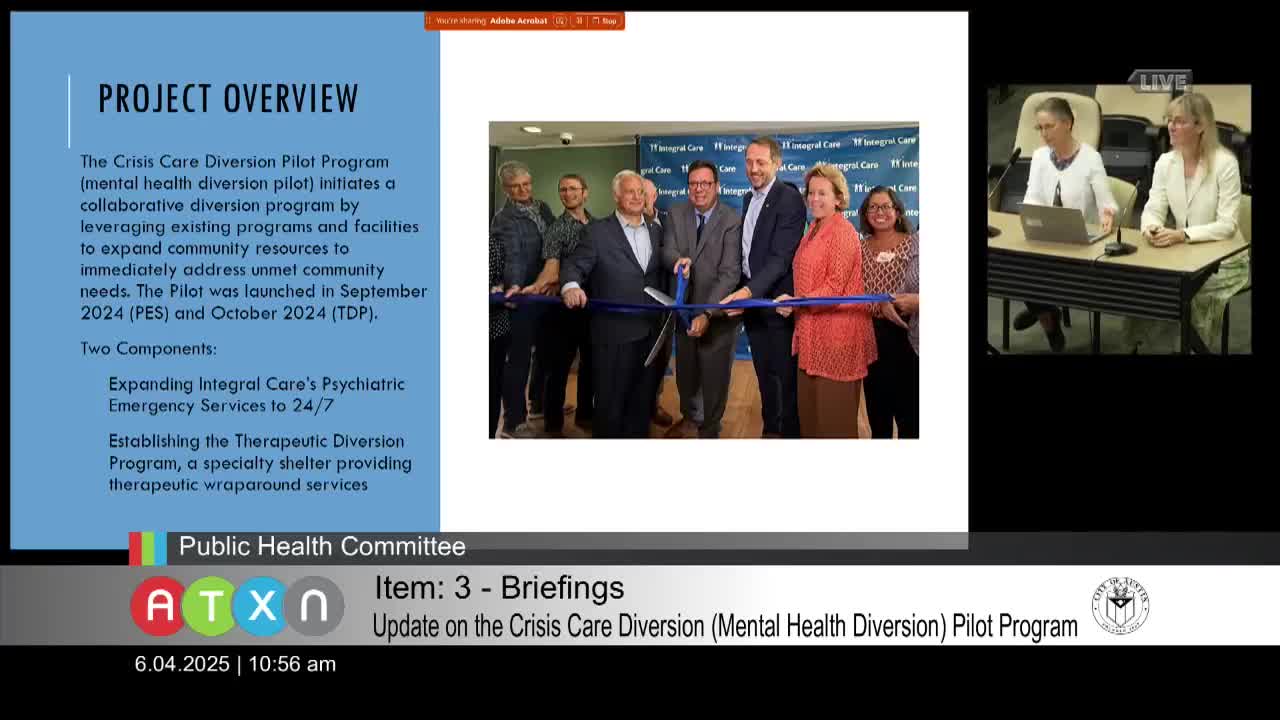Article not found
This article is no longer available. But don't worry—we've gathered other articles that discuss the same topic.
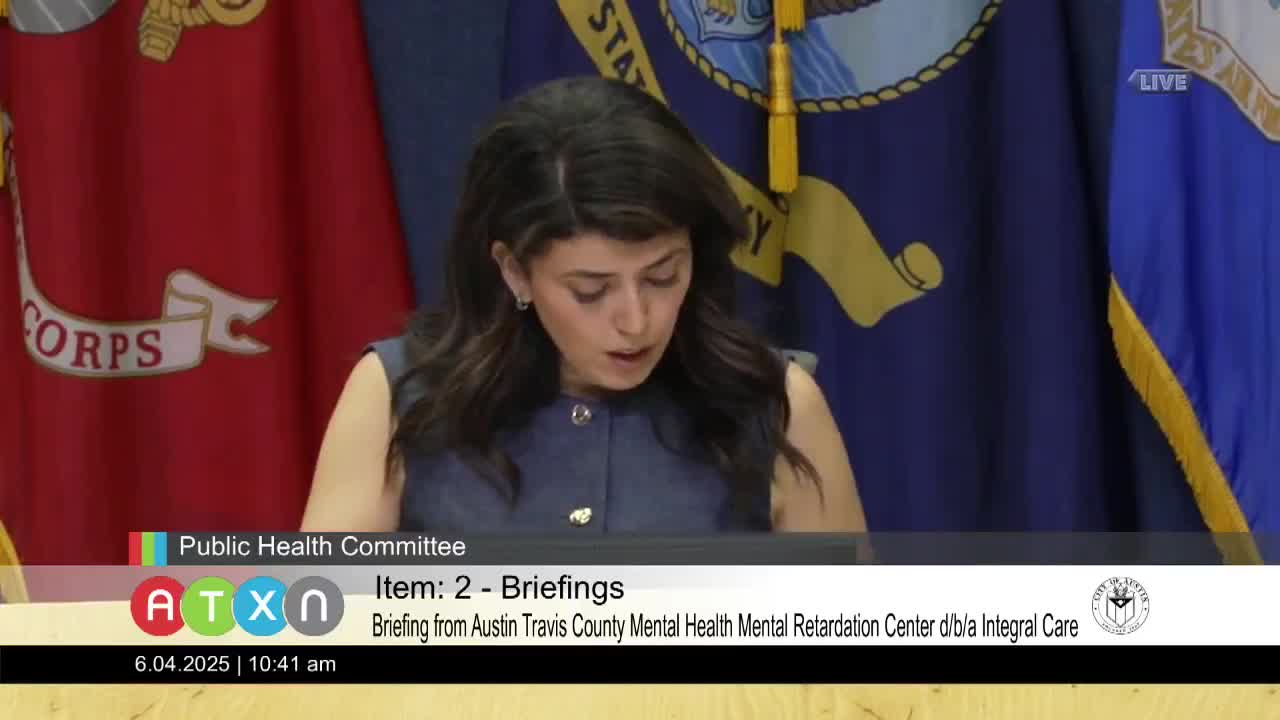
Travis County and partners brief committee on Scribe Care diversion pilot; 25‑bed therapeutic diversion center serves jailed individuals
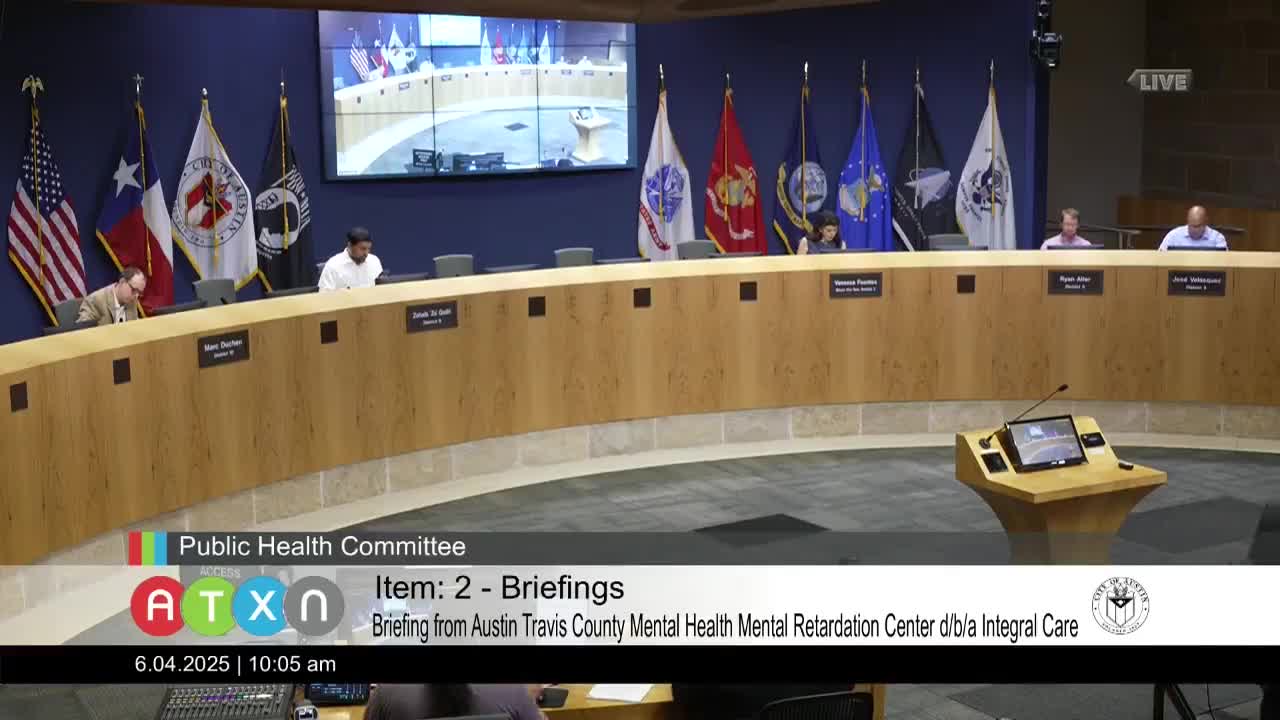
Integral Care outlines crisis services, housing programs and city funding at Public Health Committee
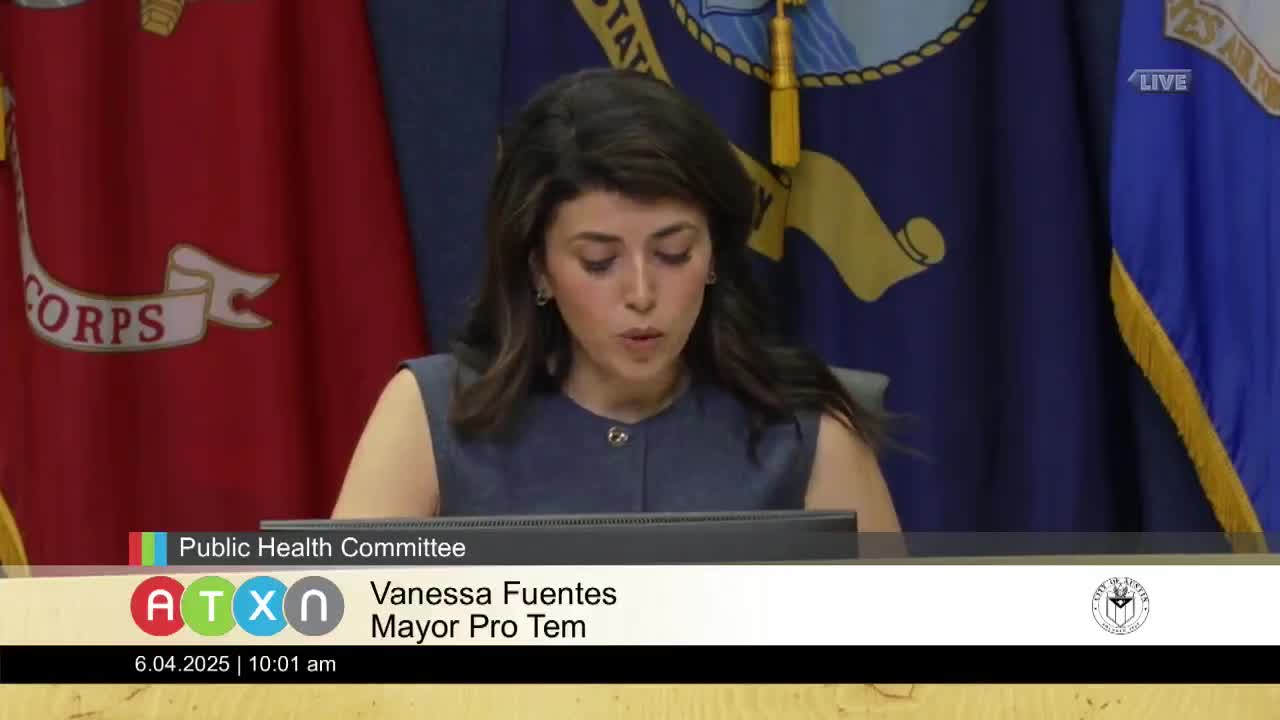
Resident urges city to track and target student homelessness funding
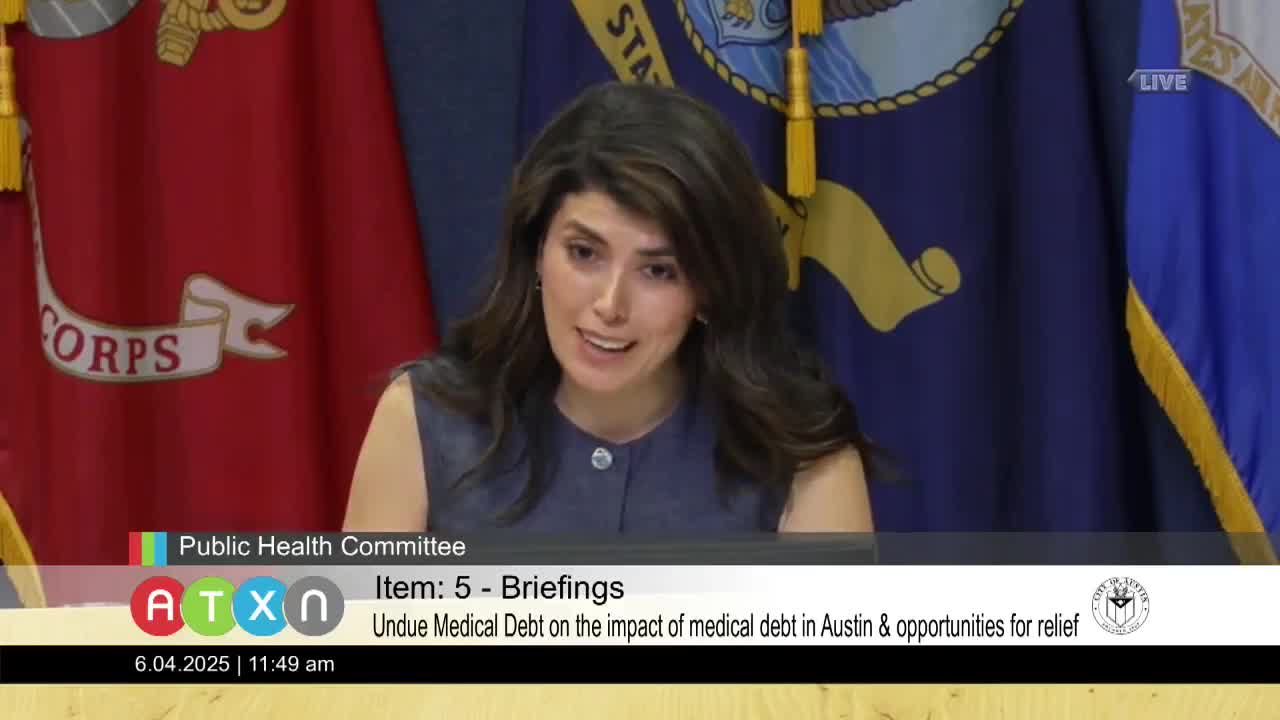
Community Court and Budget Office outline pilot to train community organizations on mobile court navigation
